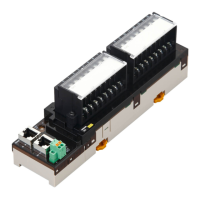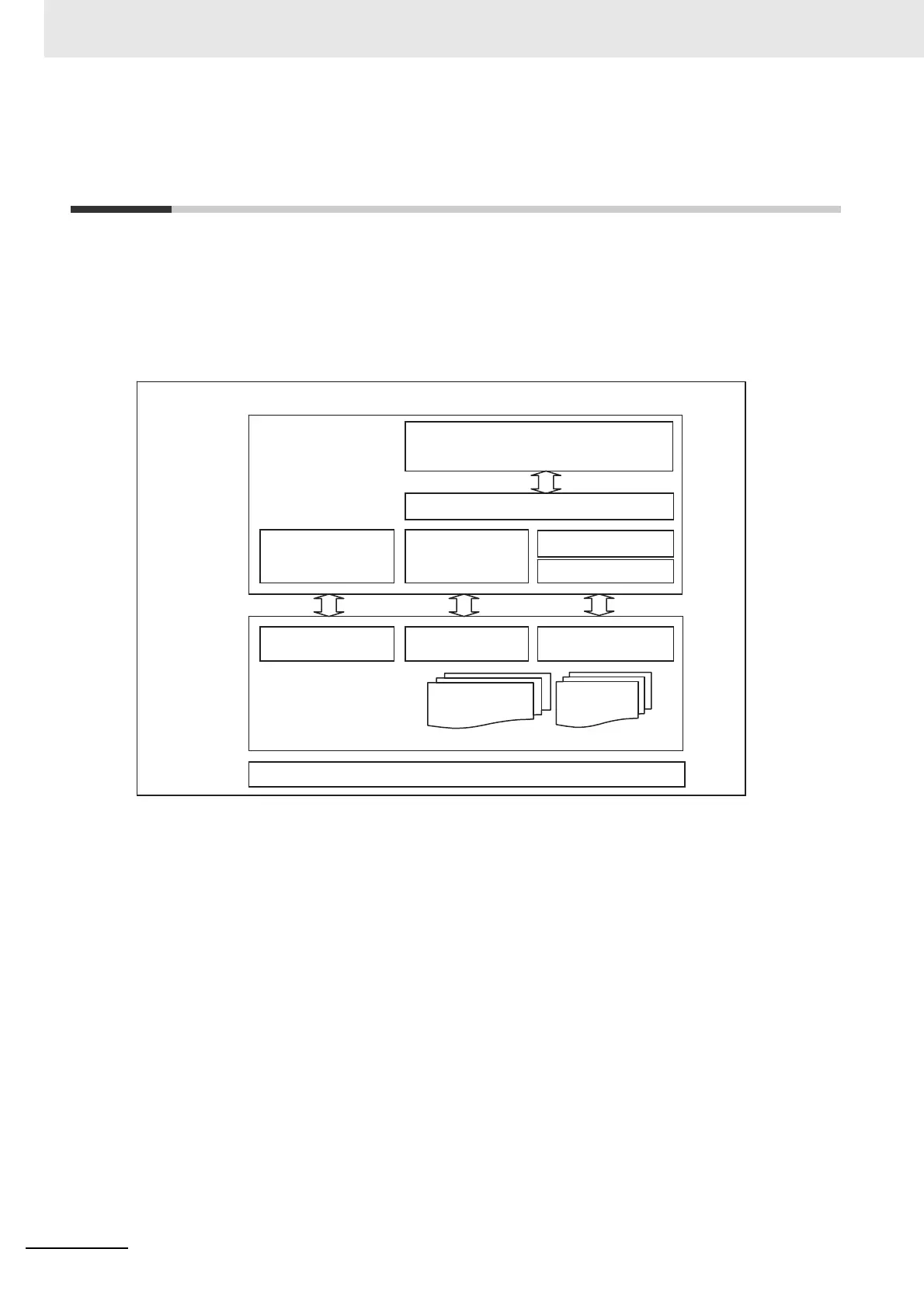5 EtherCAT Communications
5 - 2
GX-series EtherCAT Slave Unit User’s Manual
5-1 Structure of CAN application
protocol over EtherCAT (CoE)
Normally, multiple protocols can be transferred by EtherCAT. But GX-series EtherCAT Slave Units use
"CAN application protocol over EtherCAT (CoE)", a communication interface to be applied for EtherCAT
devices, as the device profile of the open network standard "CAN application protocol."
The figure below shows the structure of CoE in GX-series EtherCAT Slave Units.
CAN application protocol has two types of object dictionaries, PDO (Process Data Object) and SDO
(Service Data Object) .
PDO is composed of object dictionaries that can be mapped. The process data is defined by PDO
mapping.
PDO is primarily used in PDO communications for regularly exchanging process data.
Moreover, SDO is able to read and write all object dictionaries and is used in non-fixed-cycle type SDO
(event type messages) communications.
By using the CoE interface to set object SDO and PDO dictionaries, EtherCAT can provide EtherCAT
devices with the same device profile as CAN application protocol.
GX-series EtherCAT Slave Units
EtherCAT physical layer
Communications
status transitions
SDO (mailbox)
Slave application
Object dictionary
PDO mapping
PDO (cyclic)
EtherCAT data link layer
Registers Mailbox
Process data
FMMUSyncManager
Application layer

